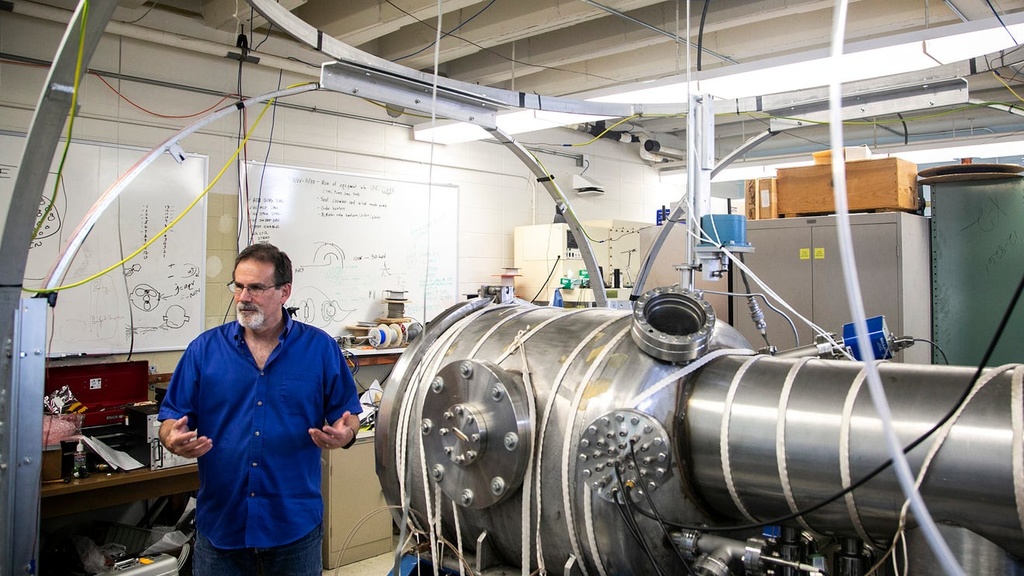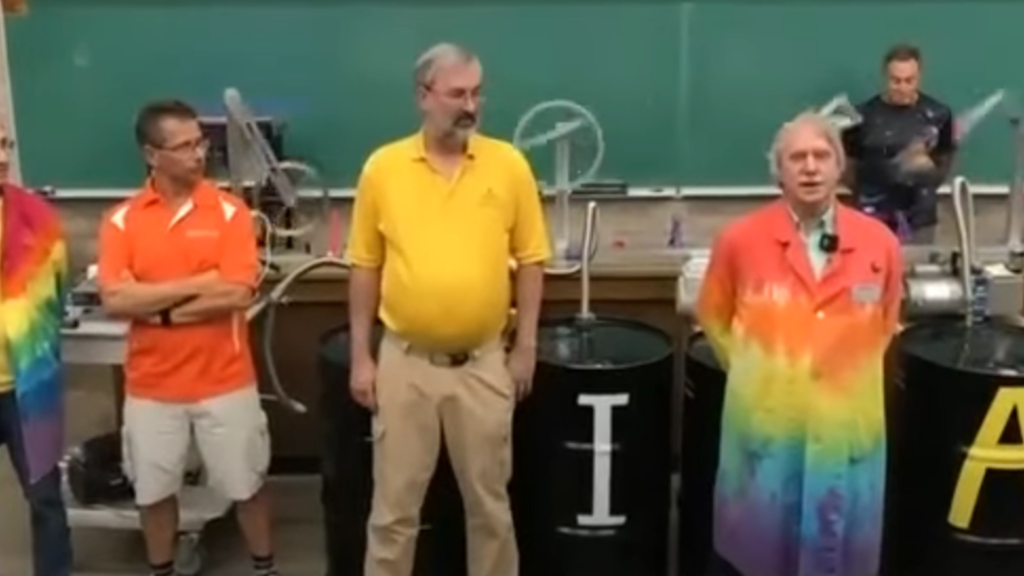Articles from 2021
Faculty and Staff: Submit grant awards, honors, research publications, accepted talks, and other news items through the faculty and staff news form.
Physics & Astronomy PhD student receives $4000 fellowship
Monday, September 27, 2021
Congratulations to Physics & Astronomy PhD student, Cecilia Fasano, for winning a competitively-awarded fellowship from the Iowa Space Grant Consortium in the amount of $4000. The fellowship supports Fasano's work in making high performance echelle gratings for UV astronomy.
Congratulations Professor Michael Flatté on new funding from the Department of Energy!
Saturday, September 25, 2021
Flatté is a collaborator on the research team that received $1.8 million in new funding for three years from the DOE’s Office of Science. The funding supports researchers who are developing the next generation of quantum smart devices and computer technology.
Congratulations Professor Casey DeRoo on new NASA award
Saturday, September 25, 2021
DeRoo earned an award from NASA entitled “Quantifying the Spectral Resolution of Next-Generation Diffraction Gratings for Ultraviolet Astronomy”
Congratulations to Professor Fred Skiff on a new award from NRL
Saturday, September 25, 2021
Skiff earned an award from the Naval Research Laboratory entitled “Measurements of suprathermal electron distributions using whistler wave absorption”
Congratulations to Joshua Doucette on a new award from BNL
Saturday, September 25, 2021
Congratulations to Joshua Doucette for a new award from Brookhaven National Lab.
Congratulations to Professor Phil Kaaret on his new SAO award
Monday, September 13, 2021
Congratulations to Professor Phil Kaaret on his new award from the Smithsonian Astrophysical Observatory (SAO) titled “X-Ray Jets in Microquasars”!
Congratulations to Dr. Rachael Filwett on her new NASA award!
Tuesday, August 31, 2021
The award is for myself and 3 Co-I's (located at APL, SwRI, and University of Alabama Huntsville) to investigate the 'seed' particles, also called suprathermal particles. Seed particles are the particles that are accelerated most efficiently in shocks. When coronal mass ejections come off the sun they are often accompanied by shocks, and these shocks pick up the particles hanging around in the near-Sun environment and accelerate them up to high energies. It's not just coronal mass ejections that accelerate particles but other solar wind interaction mechanisms, such as stream interaction regions too.

Could space storms affect life on Earth? University of Iowa researchers are trying to find out
Tuesday, August 24, 2021
Beginning around the time of the Space Age, a trove of researchers at the University of Iowa have asked the right scientific questions and, as a result, launched the first successful U.S. spacecraft, discovered the Earth's radiation belts, gotten an up-close glimpse of interstellar space and explained the phenomena of the Northern Lights, among many other milestones.

Stille Takes Part in Demo at AAPT Summer Meeting
Monday, August 23, 2021
Dale Stille, instructional services specialist in the Department of Physics and Astronomy, was a presenter in a physics demonstration held in conjunction with the American Association of Physics Teachers Summer Meeting July 31- Aug. 4.
Congratulations to Dr. Cassandra Bogh for successfully defending her PhD thesis
Tuesday, August 17, 2021
Congratulations to Dr. Cassandra Bogh who successfully defended her PhD thesis August 4th!
Pagination